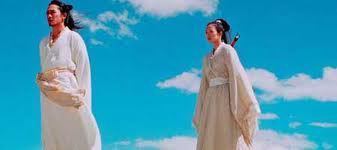Zetta Elliott's Blog, page 68
February 12, 2013
join us in St. Lucia!
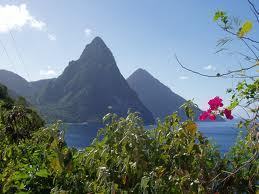 “‘The current unbroken/ the circuits kept open’: Connecting Cultures and the Commonwealth”
“‘The current unbroken/ the circuits kept open’: Connecting Cultures and the Commonwealth”
The 16th Triennial ACLALS Conference, St. Lucia, West Indies, August 5 –9, 2013
In “Sometimes in the Middle of the Story,” a poem that revisits the perilous event of the Middle Passage, the eminent Walcott scholar, Edward Baugh, gives primacy to the connecting currents of the “ocean” as a central motif. While the sea is viewed as an archive of history as Nobel Laureate and St. Lucian poet, Derek Walcott has argued, Baugh mobilizes this metaphor to both recognize the traumatic beginning of the colonial encounter in the Caribbean and the rich “refashioning of futures” of cultural connections that the Middle Passage engendered. No doubt the colonial encounter of slavery and indentureship in the Caribbean could have led to cultural enclosures, but in Baugh’s view, “the paths of ocean” represent connecting currents between and beyond the cultures of Africa, Asia, Europe and the Indigenous Caribbean. The sea, in particular, the Atlantic Ocean, was a site of treacherous travel and trade, yet that very sea is a source “connecting us still”.
Not all colonial encounters carry with them the violence of such ruptures; but whether we had traumatic or benign beginnings, we wonder what future consequently has been imagined for these and other Commonwealth lands? What global zones of power and influence haunt the seemingly ecumenical and liberal discourses of cultural exchange? What cultural connections and disconnections have emerged over time? Whose cultural currents are unbroken: whose cultural circuits have been kept open? What is the currency of indigenous language and linguistic legacies? In the commingling of cultures in the postcolonial circuits of exchange, what is the relationship between indigenous and outside cultures? Is the implicit comparative critical lens fostered in early postcolonial theory still viable? What do these connecting comparisons obscure or reveal? What is the relationship between economic currencies and cultural circuits? What are the historical and critical currents that mark postcolonial and commonwealth studies at this time? What connections are there between different genders, sexualities and ecologies? How valuable is the more recent deployment of concepts of desire, intimacy and affect to postcolonial and Commonwealth studies? What useful connections can be made between such disciplinary paradigms as globalization, diaspora and cultural studies to Commonwealth and postcolonial literature and language studies? In general, how might literary and language studies help us to understand the value of cultural connections and disconnections throughout the Commonwealth?
The 16th Triennial ACLALS Conference invites scholars working in a variety of media (literature, linguistics, film, the visual and musical arts and popular culture) to present papers on the theme, “‘The current unbroken/ the circuits kept open’: Connecting Cultures and the Commonwealth,” on the questions raised above, and on a range of topics including those listed below:
Historical and cultural currents in the Commonwealth
The common wealth of nations
Identity, currency and the practices of cultural consumption
Currents in language studies
The currency of cultures and/or Cultural Studies
Linguistic circuits and circuits of identity or cultural exchange
Cultural circuits and economic currency
The Currency of trade and travel
Circuits of violence/brokenness/trauma and cultural discourse
Discursive cultural circuits on gender and sexuality
Middle Passages and stories in the middle
The Black Atlantic and the Commonwealth
Connections/disconnections throughout the Commonwealth
Circling definitions: Commonwealth? Postcolonial? Postnational?
Waves of critical, cultural or linguistic practice
Short-circuiting genre: literary experimentation?
Island currents, global changes: conversations across the Commonwealth
Imagining Commonwealth futures
FINAL EXTENDED DEADLINE: Abstracts of maximum 300 words for papers of 20 minutes duration, and maximum 400 words for three-paper panels (with the names of the panelists) which engage with these and other relevant questions along with a short bio not exceeding 100 words should be submitted to ACLALSCONFERENCE2013@gmail.com by 28 February 2013. N.B. As of December 30, 2012, acceptance letters will be sent on a “first come, first served” basis and there are limited spaces.


January 30, 2013
farewell, Coretta
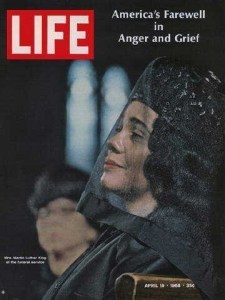 My grandmother was an ardent admirer of Dr. Martin Luther King, Jr. A “colored” woman raised in Canada to pass for white, my grandmother proudly displayed a framed copy of Dr. King’s “I Have a Dream” speech on the wall of her home. As a teenager in Toronto I took a class on American history in order to learn more about the “Negro” ancestors my grandmother so often discussed, and I was devastated when she made a gift of the speech to my frivolous older sister. I was the one teaching the Civil Rights Movement to my high school classmates; I was the one who could recite portions of the speech by heart. My grandmother did give me her carefully preserved copy of Life magazine and though I admired Mrs. King’s sorrowful yet elegant profile, I still harbored resentment over the allocation of the speech. That piece of parchment went from a place of honor in my grandparents’ manse to the wall of my sister’s apartment; it hung next to the stereo, which blared lyrics by Jay-Z that would have made Mrs. King blanch. It took years for me to realize that my grandmother gave Dr. King’s speech to the granddaughter who needed it most. I wrongly thought that my investment in social justice entitled me to inherit the framed speech, but my grandmother knew that I was ready for something more and she was right—by my last year of college I was critiquing the “I Have a Dream” speech in the campus newspaper.
My grandmother was an ardent admirer of Dr. Martin Luther King, Jr. A “colored” woman raised in Canada to pass for white, my grandmother proudly displayed a framed copy of Dr. King’s “I Have a Dream” speech on the wall of her home. As a teenager in Toronto I took a class on American history in order to learn more about the “Negro” ancestors my grandmother so often discussed, and I was devastated when she made a gift of the speech to my frivolous older sister. I was the one teaching the Civil Rights Movement to my high school classmates; I was the one who could recite portions of the speech by heart. My grandmother did give me her carefully preserved copy of Life magazine and though I admired Mrs. King’s sorrowful yet elegant profile, I still harbored resentment over the allocation of the speech. That piece of parchment went from a place of honor in my grandparents’ manse to the wall of my sister’s apartment; it hung next to the stereo, which blared lyrics by Jay-Z that would have made Mrs. King blanch. It took years for me to realize that my grandmother gave Dr. King’s speech to the granddaughter who needed it most. I wrongly thought that my investment in social justice entitled me to inherit the framed speech, but my grandmother knew that I was ready for something more and she was right—by my last year of college I was critiquing the “I Have a Dream” speech in the campus newspaper.
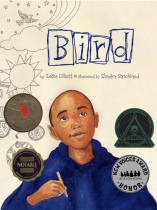 Since penning that editorial twenty years ago I have worked to develop my skills as a black feminist cultural critic. In 1994 I reversed the migration that brought my African American ancestors to Canada in 1820. Unfortunately my grandmother passed in 2002, months before I earned my PhD in American Studies from NYU; my dissertation, which focused on representations of racial violence in African American literature, was dedicated to her. I currently teach courses on race, gender, and sexuality in the Center for Ethnic Studies at BMCC, a community college in lower Manhattan that serves mostly immigrant and working-class students of color. Many are reluctant readers and so I’ve had to develop innovative ways of introducing them to black literature, which they wrongly expect to be irrelevant, outdated, and uninteresting. In addition to my teaching I’ve published scholarly essays, short fiction, and poetry in various anthologies, and my plays have been staged in New York, Chicago, and Cleveland. I’ve also published three books for young readers—one of which, BIRD, won numerous awards after its publication in 2008, including a Coretta Scott King/John Steptoe Award for New Talent for the illustrator, Shadra Strickland. Though she hoped at least one of her grandchildren would follow in her footsteps and become a preacher, overall I think my grandmother would approve.
Since penning that editorial twenty years ago I have worked to develop my skills as a black feminist cultural critic. In 1994 I reversed the migration that brought my African American ancestors to Canada in 1820. Unfortunately my grandmother passed in 2002, months before I earned my PhD in American Studies from NYU; my dissertation, which focused on representations of racial violence in African American literature, was dedicated to her. I currently teach courses on race, gender, and sexuality in the Center for Ethnic Studies at BMCC, a community college in lower Manhattan that serves mostly immigrant and working-class students of color. Many are reluctant readers and so I’ve had to develop innovative ways of introducing them to black literature, which they wrongly expect to be irrelevant, outdated, and uninteresting. In addition to my teaching I’ve published scholarly essays, short fiction, and poetry in various anthologies, and my plays have been staged in New York, Chicago, and Cleveland. I’ve also published three books for young readers—one of which, BIRD, won numerous awards after its publication in 2008, including a Coretta Scott King/John Steptoe Award for New Talent for the illustrator, Shadra Strickland. Though she hoped at least one of her grandchildren would follow in her footsteps and become a preacher, overall I think my grandmother would approve.
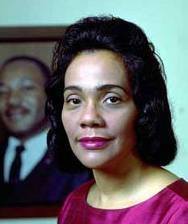 I speak to hundreds of school children every year and my author presentation always begins with the shiny stickers on the cover of BIRD. Here in the US, children always know who Coretta Scott King was and they know that, like her husband, she believed in justice and equality for all. We talk about the way awards draw attention to a particular book and often ensure that it won’t go out of print. Then I ask the children to guess how many books are published in the US each year. Once we settle on the figure (about 5,000), I ask the children to guess what percentage of those books have black authors. They’re natural optimists, children. Most of the students I meet attend majority-black schools—urban schools that are just as segregated as those that predate the Civil Rights Movement—and it’s not uncommon for them to have black-authored books in the classroom. So there are always gasps of amazement when I hold up three fingers and inform them that less than 3% of all the children’s books published each year are written by authors who look like them. I add that Asian American, Latino, and Native American authors each represent less than 1% of the total, leaving 95% of all books for children written by members of one racial group. “Does that sound fair to you?” I ask and invariably I hear a chorus of indignant NOs in response.
I speak to hundreds of school children every year and my author presentation always begins with the shiny stickers on the cover of BIRD. Here in the US, children always know who Coretta Scott King was and they know that, like her husband, she believed in justice and equality for all. We talk about the way awards draw attention to a particular book and often ensure that it won’t go out of print. Then I ask the children to guess how many books are published in the US each year. Once we settle on the figure (about 5,000), I ask the children to guess what percentage of those books have black authors. They’re natural optimists, children. Most of the students I meet attend majority-black schools—urban schools that are just as segregated as those that predate the Civil Rights Movement—and it’s not uncommon for them to have black-authored books in the classroom. So there are always gasps of amazement when I hold up three fingers and inform them that less than 3% of all the children’s books published each year are written by authors who look like them. I add that Asian American, Latino, and Native American authors each represent less than 1% of the total, leaving 95% of all books for children written by members of one racial group. “Does that sound fair to you?” I ask and invariably I hear a chorus of indignant NOs in response.
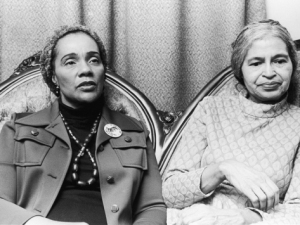 When I saw the list of CSK Award recipients on Monday, I wondered what Coretta Scott King would think. I never had the privilege of meeting Mrs. King and all I know about the award is what I’ve read on the ALA website. I know that in 2009 the CSK Book Award celebrated its fortieth anniversary, and I do believe that black authors and illustrators are better off today than they were in the “all-white world of children’s books” of the 1970s. But when we look at the small number of authors and illustrators who seem to win a CSK Award year after year after year, are we looking at a picture of real diversity? Is the award helping to increase the overall pool of black authors and illustrators, or is it merely upholding the status quo by feeding a few big fish in a very small pond? Publishers no doubt realize the committee’s seeming preference for books about Dr. King and Rosa Parks and (a few) other historical figures. Does an editor’s desire to win yet another shiny sticker deter her from publishing other authors of other kinds of books that also “demonstrate an appreciation of African American culture and universal human values?”
When I saw the list of CSK Award recipients on Monday, I wondered what Coretta Scott King would think. I never had the privilege of meeting Mrs. King and all I know about the award is what I’ve read on the ALA website. I know that in 2009 the CSK Book Award celebrated its fortieth anniversary, and I do believe that black authors and illustrators are better off today than they were in the “all-white world of children’s books” of the 1970s. But when we look at the small number of authors and illustrators who seem to win a CSK Award year after year after year, are we looking at a picture of real diversity? Is the award helping to increase the overall pool of black authors and illustrators, or is it merely upholding the status quo by feeding a few big fish in a very small pond? Publishers no doubt realize the committee’s seeming preference for books about Dr. King and Rosa Parks and (a few) other historical figures. Does an editor’s desire to win yet another shiny sticker deter her from publishing other authors of other kinds of books that also “demonstrate an appreciation of African American culture and universal human values?”
The soft-minded man always fears change. He feels security in the status quo, and he has an almost morbid fear of the new. For him, the greatest pain is the pain of a new idea.
Self-published author and quilter Kyra Hicks has conducted an analysis of the award recipients and her findings indicate that the past four decades have produced a sort of winners club, an African American artistic elite whose insider status affords them creative opportunities too often denied their emerging and/or aspiring peers. It would seem as if the John Steptoe Award for New Talent, “occasionally given for young authors or illustrators who demonstrate outstanding promise at the beginning of their careers,” was developed to help remedy this situation and yet it was not given out in 2011 or 2012, which puzzles me. The African American authors and illustrators at The Brown Bookshelf annually publish a list of 28 contributors to the field of black children’s literature. Is it possible that the CSK Book Awards Committee found no one worthy of recognition for two consecutive years?
Perhaps it is easier to look backward at the past, which is familiar and safe, than it is to look forward where new possibilities—frightening to some—extend across the shifting terrain of the future. Yet the recent presidential election revealed the danger (and ultimate futility) of holding onto a romanticized version of the past, and the 2008 election of Barack Obama demonstrated that eventually the old guard must yield to the new. The publishing world is gripped by upheaval right now and many steadfastly cling to old models for fear of embracing innovation and developing new traditions that will respond to and reflect the realities of the twenty-first century. With so-called minorities expected to make up the majority of the US population in thirty years (minority babies already constitute the majority), what can the CSK Book Awards Committee do to ensure that equity—an ideal cherished by Dr. and Mrs. King—is not undermined by the children’s publishing industry? If 95% of children’s book authors were men, white women across the country would mobilize to create change. But where is the outrage over racial dominance in the children’s literature community?
In the end, we will remember not the words of our enemies, but the silence of our friends.
In the past I have defended the CSK Award against claims that writers of all races should be eligible. With less than 3% of the publishing pie, though we constitute 13% of the US population, I felt that black authors and illustrators deserved something to call their own. Today I am less convinced of the relevance of the CSK Awards and wonder if I ought to revise the portion of my author presentation that claims the award reflects the values of Dr. and Mrs. King. The award-granting process is often controversial and generally shrouded in secrecy, though a 2010 article in School Library Journal lifted the veil on the Caldecott Medal. The CSK Book Awards Committee considers all genres, I believe, but the Caldecott focuses on only one genre and still jury members can expect to review more than 700 titles each year. I am not entirely convinced of the link between quantity and quality in books, but there is something to be said for competition and I think creativity truly flourishes when more (and more kinds of) people are invited to the drawing table. As television’s numerous talent competitions demonstrate, the US has a deep pool of gifted individuals who are simply waiting for an opportunity to shine.
Last year I received a grant from the Canada Council for the Arts to write a family memoir about my African American ancestors; I am anxious to explore the social pressures that first led them to flee slavery in the US only to further escape into whiteness in order to avoid racism in Canada. In my country of origin, an average of two black authors manage to publish a book for children each year, making a race-based award like the CSK impossible. Things are better here in the US, which is why I chose to relocate, but after more than a decade trying to publish my twenty manuscripts for young readers, I’m ready to throw in the towel and move on. I am close to completing two young adult novels, both speculative fiction, and once they’re done I plan to leave the world of children’s literature behind. I am disappointed by the complacency of so many individuals and institutions that claim to have children’s best interest at heart, yet I am encouraged by the fact that a small group of activists is currently in the process of reviving/reinventing the Council on Interracial Books for Children. I will do what I can to assist with the launch of this endeavor, and I hope its emphasis on social justice will truly honor the transformative vision of Dr. and Mrs. King.


January 23, 2013
support black women writers!
Third Conference on Women Writers of African Descent
Will Honor Jayne Cortez &
Feature Angela Davis, Sapphire, Evelyne Trouillot, and 50 others
this May in Accra, Ghana

New York, NY – The Organization of Women Writers of Africa (OWWA) and New York University, in collaboration with the Mbaasem Foundation, will present Yari Yari Ntoaso: Continuing the Dialogue – An International Conference on Literature by Women of African Ancestry. This major conference will put writers, critics, and readers from across Africa, the USA, Europe, and the Caribbean in dialogue with each other in Accra, Ghana, May 16‐19, 2013.
The public can help support authors’ participation at
http://www.indiegogo.com/projects/318981
OWWA is deeply saddened by the loss of its President and Co‐Founder, Jayne Cortez, the amazing poet, performer, and activist described by The New York Times as “one of the central figures of the Black Arts Movement.” Cortez was the driving force behind the first two Yari Yari conferences, and OWWA and NYU’s Institute of African‐American Affairs have committed to presenting the third Yari Yari as scheduled in Jayne’s honor.
The conference will consist of panels, readings, performances, and film screenings, and will be devoted to the study, evaluation, and celebration of the creativity and diversity of women writers of African descent. Fifteen years after OWWA’s first major conference, Yari Yari Ntoaso continues the dialogue of previous Yari Yari gatherings, which were the largest events of their kind, putting hundreds of women writers and scholars of African descent in dialogue with thousands of people. Confirmed participants come from more than a dozen countries, and include individuals who have been Poet Laureates and won a variety of other awards. (See the list of participants below.)
OWWA is actively fundraising to cover the costs of Yari Yari Ntoaso, and the Cortez/Edwards family encourages donations in Jayne’s name to OWWA. Donations are tax-deductible and can be made at http://www.indiegogo.com/projects/318981 or mailed to P.O. Box 652; Village Station; New York, NY 10014.
Yari Yari Ntoaso is FREE to everyone who wants to attend; attendees should register
online at http://www.owwainc.org where information about travel discounts and logistics are also available. Updates will be posted regularly on OWWA’s Indiegogo site and Facebook page.
OWWA Mission Statement:
The Organization of Women Writers of Africa, Inc (OWWA) was founded in 1991 by Jayne Cortez of the USA and Ama Ata Aidoo of Ghana for the purpose of establishing links between professional African women writers. OWWA is a 501(c)(3) nonprofit literary organization concerned with the development and advancement of the literature of women writers from Africa and its Diaspora. OWWA is also a non‐ governmental organization associated with the United Nations Department of Public Information (UNDPI). Board members include Louise Meriwether, J.e. Franklin, Maya Angelou, Rosamond S. King, Margaret Busby, and Maryse Condé.
Confirmed Participants as of January 2013:
Anne Adams (USA) – Scholar of African literature
Ama Ata Aidoo (Ghana) – Fiction writer, OWWA CoFounder
Esther Armah (Ghana, UK, USA) – Journalist, playwright, radio host
Bibi Bakare (Nigeria) – Publisher
Samiya Bashir (Somalia/USA) – Poet
Sokhna Benga (Senegal) – Novelist, children’s author
Tara Betts (USA) – Poet
Carole Boyce Davies (Trinidad & Tobago/USA) – Scholar of African diaspora literatures &
cultures
Prof. Joanne Braxton (USA) – Scholar of AfricanAmerican
poetry
Margaret Busby (Ghana/UK) – Editor, publisher
Gabrielle Civil (Haiti/USA) – Performance artist, poet
Jayne Cortez (USA) – Poet, OWWA CoFounder
Angela Davis (USA) – Scholar of prison abolition
Phillippa Yaa de Villiers (South Africa) – Poet, performer
Latasha N. Diggs (USA) – Performer, poet
Camille Dungy (USA, SFSU) – Poet
Alison Duke (Canada) – Filmmaker
Ira Dworkin (US/Egypt) – Scholar of AfricanAmerican
literature
Zetta Elliott (Canada/USA) – Fiction writer, scholar of literature & publishing
Donette Francis (Jamaica/USA) – Scholar of Caribbean literature
Gladys M. Francis (Guadeloupe/USA) – Scholar of African & Caribbean literature
Kadija George (UK/Sierra Leone) – Publisher, poet
Wangui wa Goro (Kenya) – Translator, poet
Philo Ikonya (Kenya) – Author, journalist
Rashidah Ismaili (Benin/USA) – Poet
Tayari Jones (USA) – Novelist
Madhu Kaza (India/USA) – Fiction writer
Fatou Keita (Cote d’Ivoire) – Children’s author
Jason King (USA) – Scholar of music & popular culture
Rosamond S. King – Poet, Performance Artist, Yari Yari Ntoaso Conference Director
Kinna Likimani (Ghana) – Blogger
Fungai Machirori (Zimbabwe) – Blogger, activist
Michelle Martin (USA) – Scholar of children’s literature
Roshnie Moonsammy (South Africa) ‐ Arts administrator
Micere Mugo (Kenya) ‐ Playwright, poet, scholar of African literature & orature
Angelique Nixon (Bahamas) – Scholar of literature & tourism, poet
Wura‐Natasha Ogunji (Nigeria/USA) ‐ Performance artist
Nnedi Okorafor (Nigeria/USA) – Young adult novelist
Tess Onwueme (Nigeria)‐ Playwright
Hermine Pinson (USA) – Poet, scholar of AfricanAmerican
literature
Sapphire (USA) – Poet, novelist
Lola Shoneyin (Nigeria) – Novelist, poet
Eintou Springer (Trinidad & Tobago) – Poet, playwright
Cheryl Sterling (USA) – Scholar of African & diaspora literature
Veronique Tadjo (Cote d’Ivoire/SA) – Novelist
Coumba Touré – Author (Mali) – Children’s author
Evelyne Trouillot (Haiti) – Novelist
Wana Udobang (Nigeria) – Journalist, blogger, radio host
Gina Athena Ulysse (Haiti/USA) – Performance artist, scholar of Caribbean anthropology &
blogger
Crystal Williams (USA) – Poet
Christopher Winks (USA) – Scholar of Caribbean literature


January 17, 2013
summing up The Deep
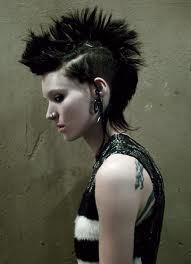 I’ve written 1200 words of The Deep today and yesterday I wrote 2000 so I thought I’d take a break tonight and work on my synopses. My publisher usually asks for three of varying lengths—200 characters, 2000 characters, and 200 words for the back cover text. I’ve finished the first two and thought I’d share them here on the blog in case you’ve been wondering what I’m writing about…
I’ve written 1200 words of The Deep today and yesterday I wrote 2000 so I thought I’d take a break tonight and work on my synopses. My publisher usually asks for three of varying lengths—200 characters, 2000 characters, and 200 words for the back cover text. I’ve finished the first two and thought I’d share them here on the blog in case you’ve been wondering what I’m writing about…
Sentence Description (200 characters, including spaces):
This urban fantasy places a Brooklyn teen at the center of a battle between good and evil. Nyla must learn to wield the astonishing power she inherited from the mother who abandoned her as a child.
Short Description (2,000 characters, including spaces):
THE DEEP plunges readers into a dangerous underground world policed by members of The League, a secret group of women and men who use their intuitive abilities to detect energy surges far below the earth’s surface. In the deep, ancient sources of malevolent energy search for fissures in the bedrock (made larger by seismic activity); “pressers” attempt to locate these leaks and “heal” the fissure, thereby preventing evil from entering the world.
Abandoned by her mother at the age of three, Nyla has grown up with a loving father and stepmother on a military base in Germany. After a traumatic assault takes place at a school dance, Nyla and her family return to the United States and take up residence in her deceased grandmother’s Brooklyn brownstone. Nyla gradually changes her outer appearance to match her inner ambivalence around femininity; despite her father’s objections, Nyla shaves off most of her hair, dyes what little’s left, and gets multiple facial and ear piercings in order to establish a new Afropunk identity.
Determined to control as much of her environment as she can, Nyla is terrified when she begins to hallucinate while walking the city streets. A man named Osiris approaches her and offers to introduce Nyla to others who have similar “gifts.” When Nyla refuses, her young friend D is kidnapped and held in the deep until Nyla agrees to let Osiris guide her below ground. There she meets Lada, the mother who abandoned her ten years ago. Furious that her daughter is being recruited by The League, Lada tries to persuade her ex-husband to take Nyla out of the city. But Nyla has decided to follow in her mother’s footsteps and her training begins at an accelerated pace when The League discovers an earthquake will soon hit Brooklyn, releasing unprecedented levels of malevolent energy into the city.
THE DEEP is the companion book to SHIP OF SOULS (2012), which was named a Top Ten Sci-Fi/Fantasy Title for Youth by Booklist.
I don’t have a contract for the book yet but I also filled out the author questionnaire they sent me for SoS. I’ve already lined up an illustrator for the book’s cover, but the movie poster that comes closest to what I have in mind is the one for The Girl with the Dragon Tattoo. Audience? Teens (13+), all genders, African Americans, New Yorkers, Brooklynites, feminists, urban fantasy/speculative fiction fans…


January 13, 2013
Osiris
 I’m 1200 words away from reaching my 10K-word goal for this month. I was a little worried that this novel, unlike Wish and Ship of Souls, didn’t have any connection to African American history. The Deep feels much more contemporary—it picks up a few months after Ship of Souls ended (in March 2011) and so I’m writing about the tsunami that devastated Japan and the mass shooting in Norway. Yesterday I worked on a scene that takes place at the Central Library here in Brooklyn; Nyla has been chosen to join The League but she resists her guide’s efforts to lead her underground. I was somewhat obsessed with ancient Egypt as a child so I don’t know why it took me so long to make the connection between the deep and the underworld. I’ve decided to name the guide Cyrus/Siris/Osiris, Egyptian god of the afterlife. Far better than Alistair, which is the name of the annoying, yappy dog in my building. My theory of Afro-urban magic requires me to incorporate African spiritual practices into contemporary urban fantasy. There isn’t much room for that in The Deep but maybe I can tweak the plot. That’s the good thing about having a third of the novel still to write—there’s plenty of room for improvement…
I’m 1200 words away from reaching my 10K-word goal for this month. I was a little worried that this novel, unlike Wish and Ship of Souls, didn’t have any connection to African American history. The Deep feels much more contemporary—it picks up a few months after Ship of Souls ended (in March 2011) and so I’m writing about the tsunami that devastated Japan and the mass shooting in Norway. Yesterday I worked on a scene that takes place at the Central Library here in Brooklyn; Nyla has been chosen to join The League but she resists her guide’s efforts to lead her underground. I was somewhat obsessed with ancient Egypt as a child so I don’t know why it took me so long to make the connection between the deep and the underworld. I’ve decided to name the guide Cyrus/Siris/Osiris, Egyptian god of the afterlife. Far better than Alistair, which is the name of the annoying, yappy dog in my building. My theory of Afro-urban magic requires me to incorporate African spiritual practices into contemporary urban fantasy. There isn’t much room for that in The Deep but maybe I can tweak the plot. That’s the good thing about having a third of the novel still to write—there’s plenty of room for improvement…


January 10, 2013
feed your imagination
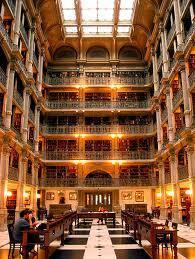 I often share that piece of advice when signing books—”Feed your imagination: read every day.” Right now I’m reading A Cupboard Full of Coats by Yvette Edwards, and I got quite a few pages read while returning from Baltimore by train earlier today. I don’t have an iPod; I read on the subway and I *try* to turn the TV off so I can read at home, too. I’ve mentioned before that I now write with the TV on, but it was *so* nice these past two days to NOT watch 3 hours of news reports every evening. I didn’t miss my 4-hour diet of NPR morning programming either because I was too busy hanging out with my dear friend Shadra Strickland! At the last minute I decided NOT to pack my laptop, which meant I couldn’t work on The Deep for a couple of days. Instead of writing I filled up on art and movies and excellent conversation (we also admired the historic Peabody Library). Shadra picked me up from the train station late Tuesday night and we went to an all-nite diner for a bite to eat. It was great to have another artist/professor to swap stories with—how was your semester? who were your best/worst students? are you getting your REAL work done? On the train ride home today I made a plan for 2013. Shadra usually makes a one-year and a five-year plan; I find it really hard to think that far ahead, but it was
I often share that piece of advice when signing books—”Feed your imagination: read every day.” Right now I’m reading A Cupboard Full of Coats by Yvette Edwards, and I got quite a few pages read while returning from Baltimore by train earlier today. I don’t have an iPod; I read on the subway and I *try* to turn the TV off so I can read at home, too. I’ve mentioned before that I now write with the TV on, but it was *so* nice these past two days to NOT watch 3 hours of news reports every evening. I didn’t miss my 4-hour diet of NPR morning programming either because I was too busy hanging out with my dear friend Shadra Strickland! At the last minute I decided NOT to pack my laptop, which meant I couldn’t work on The Deep for a couple of days. Instead of writing I filled up on art and movies and excellent conversation (we also admired the historic Peabody Library). Shadra picked me up from the train station late Tuesday night and we went to an all-nite diner for a bite to eat. It was great to have another artist/professor to swap stories with—how was your semester? who were your best/worst students? are you getting your REAL work done? On the train ride home today I made a plan for 2013. Shadra usually makes a one-year and a five-year plan; I find it really hard to think that far ahead, but it was 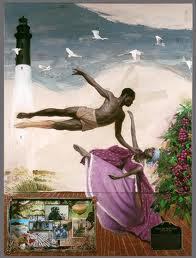 helpful to make a list of the trips I plan to take, the books I want to finish, and the articles I hope to have published this year. The last item on my list is: “consume more art!” On Wednesday Shadra got up early and made a lovely breakfast for me and Deborah Taylor, librarian at the Enoch Pratt Free Library, who stopped by on her way to work. We talked about children’s books and US presidents and the legacy of Emancipation. As much as I love waking up to silence and solitude, that can’t really compare to freshly baked biscuits and *great* conversation with friends! Later that day (after a midday nap) we went to the Walters Art Museum and saw the exhibit “Revealing the African Presence in Renaissance Europe.” We didn’t get to see the response of contemporary artists at Galerie Myrtis but I managed to find my favorite painting in the exhibit by Jules Arthur. It’s amazing how beauty feeds the soul…this morning Shadra insisted that I watch one scene from Hero and next thing you know, we were watching the entire film in our pajamas and I was practically sobbing as Broken Sword died…I ate way too much sugar in Baltimore (they have great cake!) and we didn’t wind up going for a run, but we laughed a lot and there’s always tomorrow…
helpful to make a list of the trips I plan to take, the books I want to finish, and the articles I hope to have published this year. The last item on my list is: “consume more art!” On Wednesday Shadra got up early and made a lovely breakfast for me and Deborah Taylor, librarian at the Enoch Pratt Free Library, who stopped by on her way to work. We talked about children’s books and US presidents and the legacy of Emancipation. As much as I love waking up to silence and solitude, that can’t really compare to freshly baked biscuits and *great* conversation with friends! Later that day (after a midday nap) we went to the Walters Art Museum and saw the exhibit “Revealing the African Presence in Renaissance Europe.” We didn’t get to see the response of contemporary artists at Galerie Myrtis but I managed to find my favorite painting in the exhibit by Jules Arthur. It’s amazing how beauty feeds the soul…this morning Shadra insisted that I watch one scene from Hero and next thing you know, we were watching the entire film in our pajamas and I was practically sobbing as Broken Sword died…I ate way too much sugar in Baltimore (they have great cake!) and we didn’t wind up going for a run, but we laughed a lot and there’s always tomorrow…


January 5, 2013
keeping count
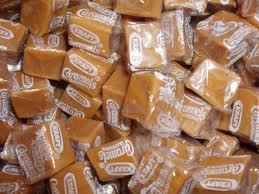 I’m beginning to lose myself in this novel. This morning I woke up with an image of the cover in my mind—black with a picture of Nyla in profile: shaved head, purple tints in her faux hawk, her many facial piercings done with silver foil. I keep a notebook next to my laptop and every few hours I stop to calculate my word count so I know how much progress I’m making. My goal is to write 10K words this month. The Deep is a novella like Ship of Souls, so it won’t be much longer than 30K words. In London I wrote over 2000 words and since the new year began, I’ve written an additional 5000. This past week I’ve fallen asleep on the couch more times than I can count, waking at 4 or 5am not sure what day it is, but with a scrap of dialogue ready to be written down. I love writing and it feels good to pull a chapter together—for more than a year I’ve been taking notes and writing bits and pieces, and now I’m finally filling in the gaps. Unfortunately I’m eating WAY too much sugar—I went two days without cake and in its place ate a bag of caramels purchased for $1 at Target, and then yesterday I woke before dawn and baked cookies. I have a sugar problem. But when I’m in the middle of a writing tear, I’m disinclined to make any drastic changes to my lifestyle. I went to the doctor on Thursday and she gave me a list of foods I need to avoid; half the items on her list aren’t even in my diet but the rest certainly are—no more chocolate! No orange juice, cranberry juice, peppermint, or tomato sauce. Today I’ll go for a run since it’s supposed to be a bit warmer, and my agent has advised me to start each day with 12 men’s pushups. “Don’t worry about how long it takes you,” she said, “just keep going ’till you get to 12.” My friends and I have agreed to try to have healthier food for our weekly Downton Abbey tea—some cakes, some scones, but fruit and sugarless options as well. I can’t afford to add a pound for every thousand words I write this month!
I’m beginning to lose myself in this novel. This morning I woke up with an image of the cover in my mind—black with a picture of Nyla in profile: shaved head, purple tints in her faux hawk, her many facial piercings done with silver foil. I keep a notebook next to my laptop and every few hours I stop to calculate my word count so I know how much progress I’m making. My goal is to write 10K words this month. The Deep is a novella like Ship of Souls, so it won’t be much longer than 30K words. In London I wrote over 2000 words and since the new year began, I’ve written an additional 5000. This past week I’ve fallen asleep on the couch more times than I can count, waking at 4 or 5am not sure what day it is, but with a scrap of dialogue ready to be written down. I love writing and it feels good to pull a chapter together—for more than a year I’ve been taking notes and writing bits and pieces, and now I’m finally filling in the gaps. Unfortunately I’m eating WAY too much sugar—I went two days without cake and in its place ate a bag of caramels purchased for $1 at Target, and then yesterday I woke before dawn and baked cookies. I have a sugar problem. But when I’m in the middle of a writing tear, I’m disinclined to make any drastic changes to my lifestyle. I went to the doctor on Thursday and she gave me a list of foods I need to avoid; half the items on her list aren’t even in my diet but the rest certainly are—no more chocolate! No orange juice, cranberry juice, peppermint, or tomato sauce. Today I’ll go for a run since it’s supposed to be a bit warmer, and my agent has advised me to start each day with 12 men’s pushups. “Don’t worry about how long it takes you,” she said, “just keep going ’till you get to 12.” My friends and I have agreed to try to have healthier food for our weekly Downton Abbey tea—some cakes, some scones, but fruit and sugarless options as well. I can’t afford to add a pound for every thousand words I write this month!


December 30, 2012
time to reflect
Many thanks to Sofia Quintero for sharing these really useful reflection prompts on Facebook. You can find the complete article (“Your Personal Year in Review”) by Ariane de Bonvoisin here.
* What was the best thing that happened to me this year?
* What did I do this year that I’m really proud of?
* Who did I really help?
* Who do I need to thank and acknowledge for having been there for me?
* What are the top three lessons I learned?
* What increased my happiness and joy this year?
* What’s something I got through that was really tough?
* What did I avoid that I must pay more attention to in 2009?
* What character trait did I develop most this year?
* What new people did I meet that are now in my life?
I completed my annual end of year slideshow—2012 was challenging, but it was also full of blessings. Thanks for sharing my journey!


A slideshow by Smilebox


December 29, 2012
a room of one’s own
For me, being alone is a luxury. Being in London for Xmas was wonderful, but the real indulgence was the days I spent indoors, seated next to the window with my laptop warming my legs. If the curtains were open there was a draft, so I sometimes shut the drapes, turned on the lights to fight the winter gloom, and delved into The Deep. I watched a lot of TV while I was over there, though I managed not to get sucked into watching Lord of the Rings again. Instead I watched back to back episodes of (US) Law & Order, and three or four episodes of Time Team. A writer is a kind of digger and so it’s no surprise that I should be fascinated by archaeology. I’ve got a London novel 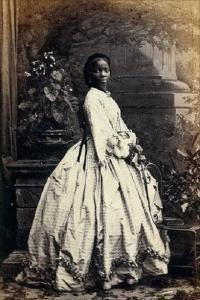 brewing in my mind. Ever since I found out about Sarah Forbes Bonetta and Walter Dean Myers’ nonfiction book about her, I’ve been interested in fictionalizing her story. My original idea was to focus on the mulatta sugar heiresses who came to London from the Caribbean hoping some desperate second son would overlook race in favor of wealth. Then I learned there was a large black population in Wales and that intrigued me. Now I feel like anything’s possible since black people have lived in England for hundreds if not thousands of years. For now I’m focusing on Nyla and her initiation into the league of “pressers.” I wrote for hours on Xmas, reaching 10K words, and then did some structural work on Boxing Day. The next day I cleared out of the flat and met my friend Mary for a full English breakfast. I’m so grateful to have friends who love literature as much as I do, and Mary’s a scholar of African American women’s fiction so we talked for hours about black authors and their books. On the flight home I thought about our conversation and the way motherhood impacts a woman’s ability to make art. I’ve blogged before about the film Who Does She Think She Is; mothers are unbelievable multi-taskers and parenting doesn’t preclude making art. But it changes things. I watched Miss Potter while I was away
brewing in my mind. Ever since I found out about Sarah Forbes Bonetta and Walter Dean Myers’ nonfiction book about her, I’ve been interested in fictionalizing her story. My original idea was to focus on the mulatta sugar heiresses who came to London from the Caribbean hoping some desperate second son would overlook race in favor of wealth. Then I learned there was a large black population in Wales and that intrigued me. Now I feel like anything’s possible since black people have lived in England for hundreds if not thousands of years. For now I’m focusing on Nyla and her initiation into the league of “pressers.” I wrote for hours on Xmas, reaching 10K words, and then did some structural work on Boxing Day. The next day I cleared out of the flat and met my friend Mary for a full English breakfast. I’m so grateful to have friends who love literature as much as I do, and Mary’s a scholar of African American women’s fiction so we talked for hours about black authors and their books. On the flight home I thought about our conversation and the way motherhood impacts a woman’s ability to make art. I’ve blogged before about the film Who Does She Think She Is; mothers are unbelievable multi-taskers and parenting doesn’t preclude making art. But it changes things. I watched Miss Potter while I was away 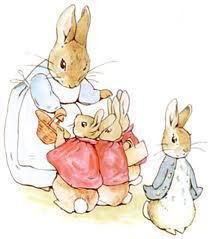 and couldn’t help but frown at the way wealth enabled Beatrix Potter to develop her charming characters and highly profitable book series. She was encouraged to sketch and paint as the child of wealthy parents, she was taken on annual holidays that nourished her imagination, and then she had the choice of accepting an aristocratic suitor or remaining unmarried in her parents’ home. She had the time and means to produce art—something a working class woman wouldn’t have had. I love Peter Rabbit and I know it wasn’t easy for even a wealthy white woman to become a published author at the turn of the 20th century. But most women in the world can’t afford the luxury of a room of one’s own—never mind a home full of servants who silently cook your food and wash your clothes. Mary and I discussed my future as an author and she encouraged me to stay in the academy. I became debt-free this year and plan to work hard at staying debt-free for as long as possible. But as someone who doesn’t write commercial fiction and struggles to place each manuscript, the academy is a decent home. What other job would give me five weeks to write over the holidays? This past semester nearly broke me but I’m developing a new course for the spring and hope that finishing The Deep will lift my spirits. I’m working on my end of year slideshow and was surprised to see how productive 2012 was—I fell short of some goals but achieved others and have a long To Do list ready for 2013. Jayne Cortez passed away yesterday and the death of a great woman artist always reminds me to press on. Tomorrow isn’t promised so produce TODAY…
and couldn’t help but frown at the way wealth enabled Beatrix Potter to develop her charming characters and highly profitable book series. She was encouraged to sketch and paint as the child of wealthy parents, she was taken on annual holidays that nourished her imagination, and then she had the choice of accepting an aristocratic suitor or remaining unmarried in her parents’ home. She had the time and means to produce art—something a working class woman wouldn’t have had. I love Peter Rabbit and I know it wasn’t easy for even a wealthy white woman to become a published author at the turn of the 20th century. But most women in the world can’t afford the luxury of a room of one’s own—never mind a home full of servants who silently cook your food and wash your clothes. Mary and I discussed my future as an author and she encouraged me to stay in the academy. I became debt-free this year and plan to work hard at staying debt-free for as long as possible. But as someone who doesn’t write commercial fiction and struggles to place each manuscript, the academy is a decent home. What other job would give me five weeks to write over the holidays? This past semester nearly broke me but I’m developing a new course for the spring and hope that finishing The Deep will lift my spirits. I’m working on my end of year slideshow and was surprised to see how productive 2012 was—I fell short of some goals but achieved others and have a long To Do list ready for 2013. Jayne Cortez passed away yesterday and the death of a great woman artist always reminds me to press on. Tomorrow isn’t promised so produce TODAY…


December 24, 2012
a very British Xmas
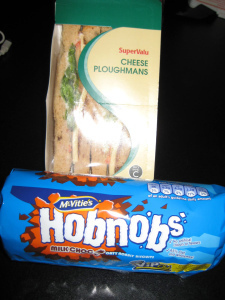 I’ve only spent two days in London and I already feel like I’m about to OD on all things British! I did come here to immerse myself in British culture but last night I turned on CNN for a break. I think this is my sixth or seventh time coming to London and that means I’ve seen all the main tourist attractions. What’s nice about this trip is that I don’t really *have* to do anything. I wanted to write but forgot to bring along an adapter and so for the past two days I haven’t had access to my laptop. On Saturday I got in around 10:30am, bought an Oyster card, hopped on the Tube and had no trouble finding my way to this lovely little flat in Islington. This isn’t a tourist area from what I can tell—no hotels, just lots of trendy restaurants and boutiques. It’s been raining a lot and I’m sorry to see so many parts of the country experiencing the same flooding that affected so many New Yorkers after Sandy. Folks still seem festive, however, and even those in the affected areas are following the British mantra of “Keep calm and carry on.” I got some groceries (shepherd’s pie, a ploughman’s sandwich, and Hobnobs) and then spent the rest of Saturday sleeping off jet lag and watching TV—did you know Guinevere on the show Merlin is a woman of color? All the shows I normally watch on PBS are on regular rotation here—and Xmas day promises new episodes of Call the Midwife and Downton Abbey. And I suppose I’ll watch the Queen’s Xmas message since I’m here.
I’ve only spent two days in London and I already feel like I’m about to OD on all things British! I did come here to immerse myself in British culture but last night I turned on CNN for a break. I think this is my sixth or seventh time coming to London and that means I’ve seen all the main tourist attractions. What’s nice about this trip is that I don’t really *have* to do anything. I wanted to write but forgot to bring along an adapter and so for the past two days I haven’t had access to my laptop. On Saturday I got in around 10:30am, bought an Oyster card, hopped on the Tube and had no trouble finding my way to this lovely little flat in Islington. This isn’t a tourist area from what I can tell—no hotels, just lots of trendy restaurants and boutiques. It’s been raining a lot and I’m sorry to see so many parts of the country experiencing the same flooding that affected so many New Yorkers after Sandy. Folks still seem festive, however, and even those in the affected areas are following the British mantra of “Keep calm and carry on.” I got some groceries (shepherd’s pie, a ploughman’s sandwich, and Hobnobs) and then spent the rest of Saturday sleeping off jet lag and watching TV—did you know Guinevere on the show Merlin is a woman of color? All the shows I normally watch on PBS are on regular rotation here—and Xmas day promises new episodes of Call the Midwife and Downton Abbey. And I suppose I’ll watch the Queen’s Xmas message since I’m here. 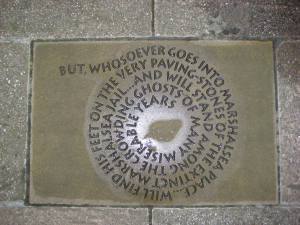 On Sunday I took a Dickens & Shakespeare walking tour and met a nice couple from Florida; even though I’m here to get away from all the drama in the US, it felt good to talk about the gun control debate with them. After the tour ended I stopped by the Tate Modern and toured The Tanks—amazing industrial art spaces that utilize the building’s former oil tanks. South African William Kentridge was one of the featured artists and I love his collage/stop-animation. Afterward I walked back to London Bridge and shopped at the Borough Xmas Market where I bought two meat pies and jars of Jumbleberry Jam and High Dumpsie Dearie Jam. “That’s very British,” said the vendor, which is why I bought it, of course. Now I’m ready to make a shift. Today’s plan is to visit the Dickens museum, though I’m off to a slow start. I found a Caribbean eatery last night while scouring Upper Street for an adapter so that may be my meal of the day. There’s an exhibit on London, Sugar & Slavery at the Docklands but they’re closed until Thursday—the day I leave. Will try to squeeze it in before heading to the airport…
On Sunday I took a Dickens & Shakespeare walking tour and met a nice couple from Florida; even though I’m here to get away from all the drama in the US, it felt good to talk about the gun control debate with them. After the tour ended I stopped by the Tate Modern and toured The Tanks—amazing industrial art spaces that utilize the building’s former oil tanks. South African William Kentridge was one of the featured artists and I love his collage/stop-animation. Afterward I walked back to London Bridge and shopped at the Borough Xmas Market where I bought two meat pies and jars of Jumbleberry Jam and High Dumpsie Dearie Jam. “That’s very British,” said the vendor, which is why I bought it, of course. Now I’m ready to make a shift. Today’s plan is to visit the Dickens museum, though I’m off to a slow start. I found a Caribbean eatery last night while scouring Upper Street for an adapter so that may be my meal of the day. There’s an exhibit on London, Sugar & Slavery at the Docklands but they’re closed until Thursday—the day I leave. Will try to squeeze it in before heading to the airport…
Yesterday when I came up from the subway I saw these two brothers playing “All I Want for Xmas” on steel drums! I filmed a bit but haven’t had luck posting it online. Will keep trying. In the meantime, why not pop over to The Book Smugglers and check out my guest post for Smugglivus? Time to venture out into the rain…



